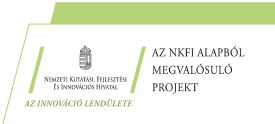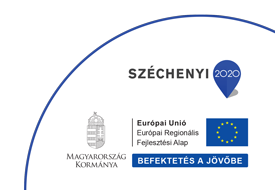Racing with the Flow
The University of Wolverhampton is a leading modern university in the UK with a tradition of providing opportunity and academic excellence dating back nearly 200 years. Today their three Faculties offer courses in over 70 different subjects and over 4,000 students graduate from Wolverhampton each year.
The University is committed to producing graduates who can apply both theory and practice in industry. To give engineering students an opportunity to develop their professional practice, the University of Wolverhampton Racing (UWR) Team was created in 2014 made up of students from the School of Engineering, including Motorsport, Automotive, Aerospace and Mechanical Engineers. They compete in multiple different disciplines of motorsport, such as the IMechE Formula Student competition, where their skills and their stamina are put to the test to design and build a car that can race the fastest laps and compete effectively against national and international student teams.
The Formula Student team have always been encouraged to undertake a combination of liaising with external suppliers and manufacturers and in-house development to learn as much as possible about design and production schedules. The School of Engineering has a wealth of knowledge around Additive Layer Manufacturing using metals such as aluminium and titanium, but had little experience of using filament based 3D printing. The ability to produce high quality parts in a variety of materials suitable for both prototyping and end-use at a low cost meant that students could experiment with ambitious designs with a high degree of confidence they would function as intended.



UWR chose to partner with Craftbot as its supplier of 3D printers due to their range of high quality machines that were both user-friendly and could reliably produce excellent quality parts. They received both a Craftbot Flow and a Flow IDEX machine to use for building different car parts. The large build volume of the Flow IDEX machine made it ideal for this application as it was possible to consolidate large assemblies such as sections of the intake system into one piece, helping to increase airflow to the engine. With the Flow IDEX, various parts could be printed using the dual extrusion capabilities enabling reduced production time and material selection to be further optimised.

As Craftbot provides a complex 3D printing ecosystem, the UWR team not only used two Flow printers, but could also use Craftware as their slicer software of choice. The Craftware interface made it easy for students not familiar with 3D printing to quickly learn how to create build profiles for different materials and parts, giving outstanding results first time.


Formula Student team leader, Reuben Inganni, commented “The excellent build quality and fantastic support staff really gave us confidence in our choice to work with Craftbot and the results speak for themselves! As a team, we have been very pleased to partner with Craftbot.”
Craftbot’s extensive network of support and advice also made it possible for students to develop key additive manufacturing skills. Using both the online knowledge base and first-hand support from Craftbot, UWR significantly increased their printing capabilities, bringing results far beyond their expectations.
The high quality parts that came from the machines meant that the team were able to expand the use of the printers from visual prototyping to the production of end-use parts and in total over 15 components on the car were produced using Craftbot printers, in a range of materials.
As a result of this, UWR used the Craftbot machines in their cooperation with the Morgan Motor Company. As the factory works team, UWR students have been tasked with converting two Plus Fours for racing, one with a manual gearbox and one with an automatic.



Students have been light-weighting the road derived cars, along with fitting hard-top roofs and other aerodynamic tweaks, as well as replacing key components to ensure the cars are ready for endurance racing.



As the UWR team put the finishing touches to the two Plus Fours, the vehicles turned from road-going cars into fully prepared racing cars. The new racing models were exclusively revealed at an event at Donington Park and made their racing debut at the Race of Remembrance at Anglesey in November 2021, performing well over 12 hours of racing with both experience and inexperience drivers alike.
In the following video Conor Hitchin, Aerospace Engineering Student, talks about how the Craftbot 3D printers were used in the Morgan project.
UWR are continuously looking to expand their 3D printing capabilities by incorporating the techniques and new, higher specification materials into its 2022 Formula Student car as well as other projects within the University’s School of Engineering.

